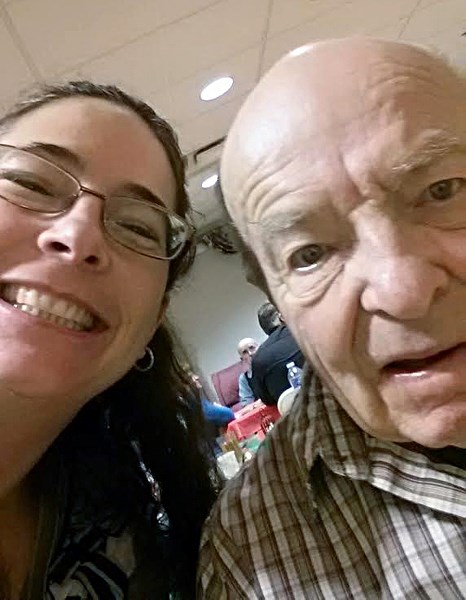Living with dementia can often be a difficult and overwhelming experience.
That is one reason why the Innisfail Dementia Support and Advocacy group was formed last spring. This month is Alzheimer Awareness Month across Canada, and public awareness about the disease, a form of dementia, is vitally important for group members.
“It started with three or four of us getting together once a month,” said Jean Barclay, coordinator for the support group. “We meet now once a month, typically on the first Saturday of the month at Sunset Manor in Innisfail.”
The support and advocacy group began after Barclay and several others attended a presentation in Red Deer on the use of anti-psychotic medications for dementia.
Since then, the group has grown and is well attended, noted Barclay, pointing to its need in Innisfail.
“I think it's clear that there's a thirst for information,” she said. “It helps families to share their stories. They've been through that and they can help others with an incident or behaviour. They're not alone,” she added.
Lynn Whitney joined the support group several months ago. Her father, Donald Racher, was diagnosed with dementia in June 2014.
“I look forward to going every month, and sitting around, talking with people who know exactly what I'm going through,” said Whitney. “The beginning is so scary and it's so nice to go somewhere where they know (what you're experiencing) and they understand.”
Whitney said the local support group has also been a great place to learn as well.
“We've had speakers in a couple of times. You learn a lot from them and from the other people there,” she said, noting the different types of dementia that exist. “You learn about the other kinds of dementias. My dad has vascular dementia.
“There's probably 100 different kinds of dementia. Alzheimer's is just one of them,” explained Whitney.
The group has been a huge help to both her and her father.
“I feel that I'm more educated to be able to fight for him. To get him what he needs because he's not able to do that,” she said. “That came from the support group, from talking to other people there.”
With dementia there is often significant decline and changes in personality, behaviour, reasoning and other cognitive functions, said Barclay. With that often comes the stigma associated with dementia, she added, noting the support group helps both dementia patients and their caregivers.
“When you're diagnosed with dementia it's progressive and terminal,” said Barclay. “There's no cure and there's no treatment. You don't know how long that journey will be. It could go from several months to several years.”
In addition to support, the group also focuses on advocacy for dementia patients and caregivers.
“I think awareness is a big part of it,” said Barclay, adding that people are often unsure of how to deal with dementia patients because of the changes that occur over time.
“On the other side of that I think of people in the early stages (of dementia). There's so many things they can still do and they can still be very engaged in the community,” explained Barclay.
While dementia will progress and abilities will change, noted Barclay, it does not mean that people living with dementia cannot have the best quality of life possible.
“People with dementia can still learn new things and can do lots of things,” said Barclay. “When you're diagnosed with (dementia), it's about how we can live to the best of our abilities with what we have.”
For more information on dementia or the Innisfail Dementia Support and Advocacy group, contact Barclay at 403-396-0902 or visit the Facebook page Dementia Alberta.
Jean Barclay
"When you're diagnosed with dementia it's progressive and terminal. There's no cure and there's no treatment. You don't know how long that journey will be. It could go from several months to several years."



